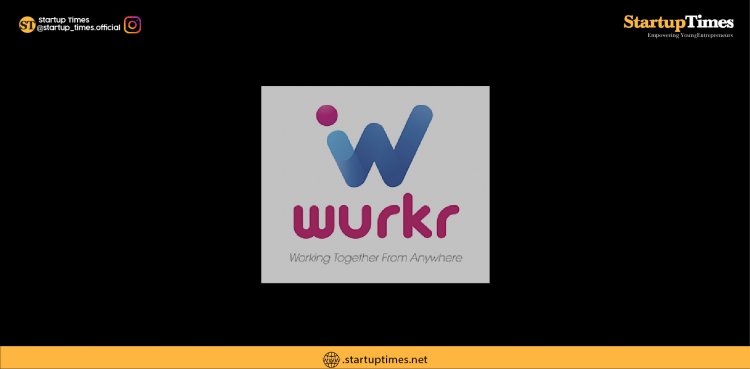Wurkr: Working from anywhere Video App
The Bengaluru and London based startup Wurkr enables the new employees to engage with current employees through a video app. It prevents new employees from feeling left out.

The pandemic has made it difficult for the new employee to adjust to the office environment. After the customary introduction with their colleagues that happens over a video call, mostly there are no further social meetings, making the new employee feel isolated.
Wurkr is a startup founded by Annil Chandel and Tim Lloyd that enables team management and employee wellbeing on a platform. The app motivates impromptu social interaction in the allotted teams. It encourages collaboration and creativity by facilitating spontaneous chats, constructing and maintaining a culture in the company.
"Wurkr makes it simple and easy to onboard new team members. It allows them to quickly feel like a part of the company within a distributed team environment from wherever they choose to work around the globe. It has especially become relevant now, with the COVID-19 pandemic. Wurkr predates the COVID-19 pandemic. It assists in the digital transformation of businesses. In simple words, Wurkr facilitates, encourages, and enables a ‘working together from anywhere’ ecosystem in a video-enabled fully immersive workplace," says Annil.
Annil and Tim were colleagues who turned friends in SthreePlc, a specialist staffing organization based in London. Both of them co-founded ‘KnoenFour’, a remote-first recruitment business in London. They built a team of distributed recruiters working from different locations either in their homes or office. Then they began searching for collaboration software to enable them to stay connected online. Later they realized that an off-the-shelf solution is not available in the industry. So they built their own ‘working from anywhere’ video app which is now famous as Wurkr.
The digitalization in India was slow. The Government’s Digital India Initiative has encouraged many businesses to take up digital philosophy, but the process of implementation was very slow. However, the pandemic brought a significant change in everyone’s life, forcing them to take the digital route.
The company is of the belief that with the incorporation of more youth in the workforce, the demand for flexible and remote working options would increase. The startup is using technology to not only empowers the distributed workforce to communicate but also allow social interaction in a similar way as a physical office does.













